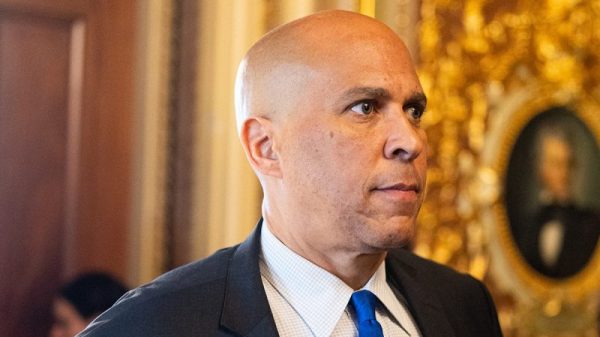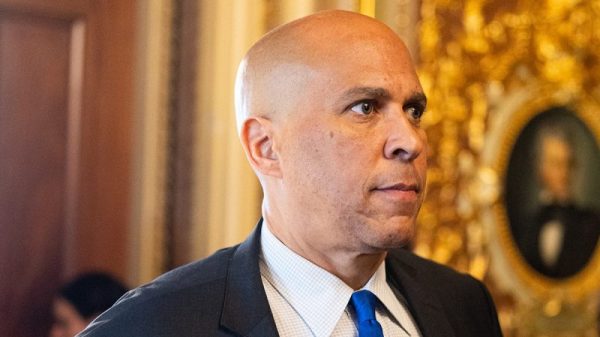Supreme Court Justice Ketanji Brown Jackson has faced scrutiny for making a flawed claim about Black infant mortality under White doctors in her dissenting opinion to last week’s landmark affirmative action decision.
Jackson sought to show that race-based admissions are a matter of life and death for racial minorities, and her dissenting opinion in the Supreme Court’s ruling on Students for Fair Admissions v. Harvard cited an example. The law firm apparently responsible for the misleading statement sought to ‘clarify’ the claim on Friday.
Seeking to show that considering race in admissions was fair and realizes equality, Jackson argued in her dissent that diversity ‘saves lives’ and is essential for ‘marginalized communities.’ She asserted that diversity is for the ‘betterment’ of students and society at large beyond college campuses.
‘For high-risk Black newborns, having a Black physician more than doubles the likelihood that the baby will live, and not die,’ Jackson wrote as one example.
That claim came from an amicus brief filed by lawyers representing an association of medical colleges. The brief stated that for ‘high-risk Black newborns, having a Black physician is tantamount to a miracle drug; it more than doubles the likelihood that the baby will live,’ citing as support a 2020 study that examined mortality rates in Florida newborns between 1992 and 2015.
In a letter Friday filed to the Supreme Court docket, Norton Rose Fulbright wrote that the argument cited by Jackson in her opinion ‘warrants clarification’ and sought to clear up any ‘confusion.’
‘The principal cited finding of the [study] was that the mortality rate for Black newborns, as compared to White newborns, decreased by more than half when under the supervision of Black physician,’ the law firm’s letter said. ‘In absolute terms, this study found that patient-physician racial concordance led to a reduction in health inequity.’
However, the letter continued, while survival and mortality may be opposites and decreased mortality generally indicates increased survival, ‘statistically they are not interchangeable. Thus, the statement in the [amicus brief] warrants clarification.’
Still, the lawyer added that the study nonetheless supports Jackson’s argument in her dissent, expressing ‘regret’ for ‘any confusion’ that may have been caused by the statement in its brief.
The letter to the Supreme Court added that a ‘more precise’ summary of the 2020 study’s findings would have been to say that ‘having a Black physician reduces by more than half the likelihood of death for Black newborns as compared to White newborns.’
In other words, Jackson’s claim in her opinion that having a Black physician ‘more than doubles the likelihood that the baby will survive’ could be misleading, because the study on which that statement is based examined lower mortality rates, which is not the same thing statistically as survival.
Norton Rose Fulbright’s letter came after Jackson’s statement in her dissenting opinion caught the attention of several legal experts.
In a Wall Street Journal op-ed this week, Ted Frank, a senior attorney at Hamilton Lincoln Law Institute, responded directly to Jackson’s claim, lambasting the justice for making a mathematical error.
‘A moment’s thought should be enough to realize that this claim is wildly implausible,’ wrote Frank, who filed an amicus brief in support of Students for Fair Admissions. ‘Imagine if 40% of black newborns died — thousands of dead infants every week. But even so, that’s a 60% survival rate, which is mathematically impossible to double. And the actual survival rate is over 99%. How could Justice Jackson make such an innumerate mistake?’
Frank went on to argue that the 2020 study was ‘flawed’ and didn’t match Jackson’s claim about Black newborns having a significantly higher chance of surviving with a Black physician.
‘The study makes no such claims. It examines mortality rates in Florida newborns between 1992 and 2015 and shows a 0.13% to 0.2% improvement in survival rates for Black newborns with Black pediatricians (though no statistically significant improvement for black obstetricians),’ Frank wrote.
‘So, we have a Supreme Court justice parroting a mathematically absurd claim coming from an interested party’s mischaracterization of a flawed study. Her opinion then urges ‘all of us’ to ‘do what evidence and experts tell us is required to level the playing field and march forward together.’ Instead, we should watch where we’re going.’
Jonathan Turley, a law professor at George Washington University and Fox News contributor, used Frank’s op-ed and Jackson’s opinion to argue in a blog post Friday that it can be problematic when various advocacy groups file waves of amicus briefs in Supreme Court cases supporting one side or the other by pushing studies and other data that the justices use in their arguments.
‘My opposition to the brief is that the justices are in a poor position to judge the veracity or accuracy of such studies,’ Turley wrote. ‘They simply pick and choose between rivaling studies to claim a definitive factual foundation for an opinion.
‘When you are before the Supreme Court, everyone is free to just dump statistics and studies into the record, and the court regularly uses such material to determine the outcome.
‘It produces more of a legislative environment for the court as different parties insert data to support their own view of what is a better policy or more serious social problem. There is only a limited ability of parties to challenge such data given limits on time and space in briefing. The result is that major decisions or dissents can be built on highly contested factual assertions. In this case, critics believe that the Jackson argument literally does not add up.’
The Supreme Court ended affirmative action in a landmark 6-3 decision June 29. The case combined lawsuits brought against Harvard University and the University of North Carolina by the student activist group Students for Fair Admissions, which argued that the schools’ admissions programs discriminated against Asian applicants in violation of, respectively, Title VI of the Civil Rights Act and the equal protection clause of the 14th Amendment.
‘A benefit to a student whose heritage or culture motivated him or her to assume a leadership role or attain a particular goal must be tied to that student’s unique ability to contribute to the university,’ Chief Justice John Roberts wrote in the court’s majority opinion.


































